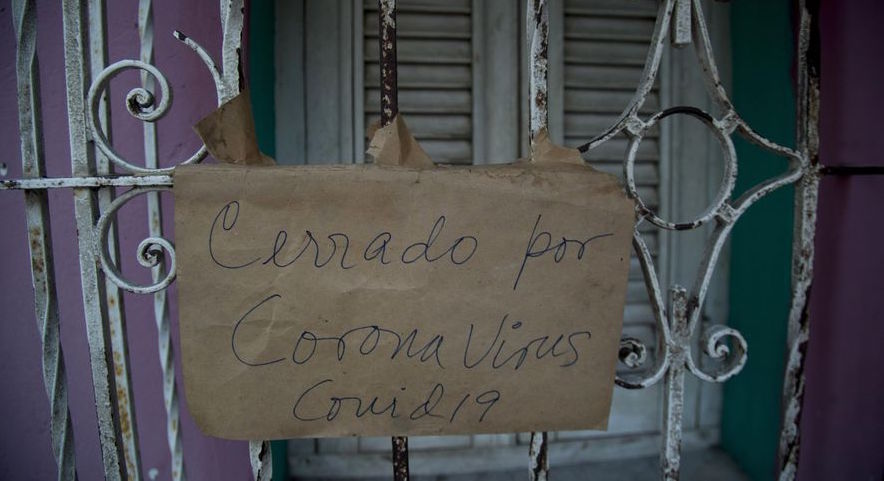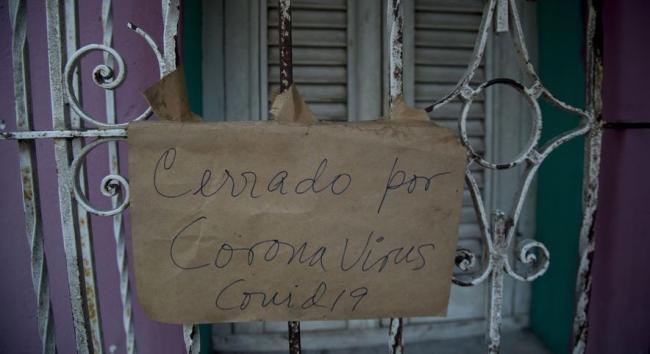Long before March 11, the day the World Health Organization declared the new coronavirus a global pandemic, and the first three infected people were detected in Cuba, the island's economy was already in the throes of what some consider to be the greatest crisis since the "Special Period" of the 90s.
One of the facts supporting this thesis is that during the last seven years the country's GDP has posted almost zero growth. The pandemic arrived against this already dismal backdrop.
The decline in the economy could reach close to 6% of GDP, "almost double what the CEPAL economic commission estimates, and slightly above other countries in the region," economist Elías Amor told DIARIO DE CUBA.
"The engines of the economy (tourism, remittances, foreign investment, exports, oil imports and internal consumption by families) have been brought to a halt by the confinement, and there are no alternatives to recover growth, as revenue from the sale of medical services doctors is insufficient."
In his opinion, it is also worrisome that "the Government has not presented a plan for what comes after this."
"It keeps talking about the plan for 2030 and the guidelines (of the Communist Party), and all that has been rendered obsolete by the advent of Covid-19. We have to carry out deep structural reforms that, unfortunately, are nowhere in sight."
Private sector
Fellow economist Pedro Monreal, in a text published on April 28 on his blog, underscores the importance of the private sector, which, in his opinion, could be one of the keys to easing the impact of the crisis, but "capitalizing on it would require legalising the operation of small and medium-sized companies."
One of the factors Monreal cites to assert the importance of this sector (to which the Government refers using the euphemism "Self-Employment") is that since 2008 it has been the only one that has seen a net increase in employment in Cuba, with a rise of some 4.9% per year, in 2019 accounting for some 31.8% of the country's employment – despite being shackled by restrictions imposed by the Cuban government.
The island's authorities continue to constrain the development of businesses that merit categorisation as companies. As a result, many economists and businesspeople are demanding a Small and Medium-sized Enterprises (SMEs) law.
This format, Monreal points out, "would offer technical-productive advantages superior to the ambiguous 'Self-Employment' (SE) scheme today. Its 'form' would resemble that of individual and family operations, but it would allow for the hiring of employees, even if national private companies are not recognized."
In addition, the economist stresses that, along with the legalisation of SMEs, the "nominal system of licenses (narrow and primitive), which precludes the deployment of the technical capabilities of part of the SE workforce, must be eliminated."
Tourism, remittances and medical services
The Tourism sector, to which the Government and the military have made a commitment, with the construction of hotels and infrastructure in recent years, has been stopped in its tracks by the border closure triggered by the pandemic.
This area, which boasted significant growth (visits to the Island doubled between 2007 and 2017), had already been suffering considerable drops, mainly due to the measures imposed by the Trump Administration.
Communications expert and sociologist Lenier González Mederos, in an article published in The Dialogue, stresses that the current border closure will affect this sector in an unprecedented way, generating massive losses on the island, which "will have high-impact implications, given the sector's connections to other areas of the Cuban economy."
Asked about it by DIARIO DE CUBA, economist Carmelo Mesa-Lago estimated that the losses could come to some three billion dollars.
Monreal believes that, in an eventual economic recovery in 2021, "Tourism, which went from being an 'engine' to an 'accelerating' factor of the recession, is likely to function as a factor 'retarding' recovery, because there are no signs suggesting a secure and substantial revival of tourism volume in 2020 and 2021."
Remittances, one of the island's main sources of income, are also estimated to decrease by more than $ 1.18 billion, according to estimates by The Havana Consulting Group (HCG). These figures are credible if we consider the impact that the pandemic is having on the economies of the United States and European countries, such as Spain and Italy, where a major community of Cuban emigrants lives. For this reason, Emilio Morales, president of the HCG, believes that these money transfers could drop between 20% and 30%.
The sale of professional services abroad, mostly health personnel with contracts that many compare to conditions of slavery, has been the main source of government revenue in recent years, despite having fallen from 13.8 % of GDP to 8.3% between 2012 and 2017.
To this decrease we must add the cancellation of agreements with Brazil, Bolivia and Ecuador in the last two years, and the reduction of personnel in Venezuela, which, according to Mesa-Lago's statements to DDC, will not be offset by the recent brigades sent to some twenty countries.
This scenario is further exacerbated by the worsening of the economic crisis in Venezuela – a country that, in 2012, for example, was estimated to have contributed approximately $14 billion to the Cuban State.
Nor can good news be expected in the area of commerce, since the products that generate the most revenue for the country, such as nickel, have plummeted on the international market. Something similar may be said of the tobacco sector, where exports in 2019 were up just 2%, the weakest growth in the last six years.
The Economic Intelligence Unit, the division in charge of research, analysis and forecasting for the group behind The Economist, calculates that the export of goods and services from Cuba will decline by 16% in 2020.
In general, economists's opinions augur more tough times for a country with extremely deteriorated infrastructure; crises in transport, food, housing and even its water supply, all this compounded by an exodus of its young people that continues to give the island one of the oldest populations in the region.

